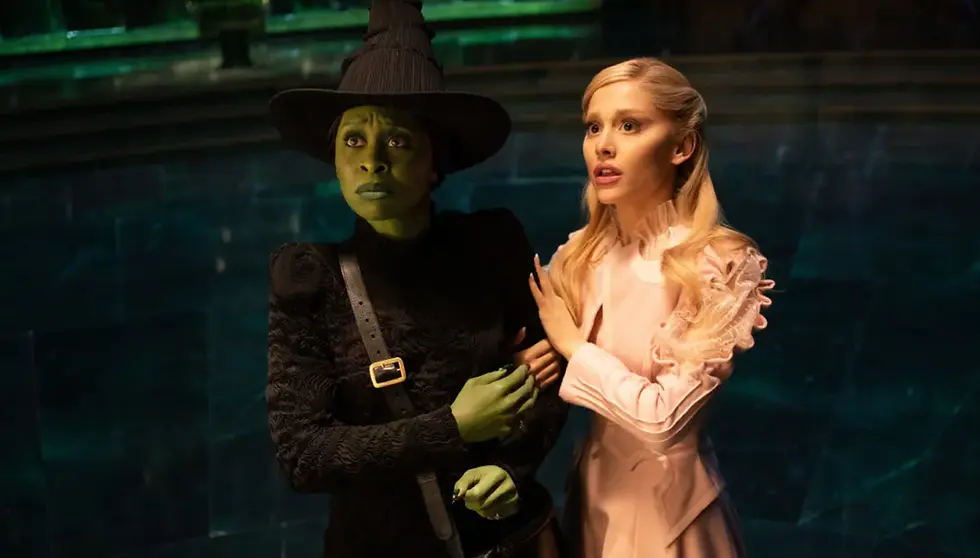Disco Sucks - Hippodrome Casino
- comaweng
- Jan 24, 2023
- 3 min read

Photo credit: Jamie Alexander (https://lensworksphotography.format.com/about-me)
At face value, the idea behind ‘Disco Sucks’ was fairly benign. In 1979, Steve Dahl, still a disc jockey to this day (although it could be argued he is effectively more of a podcaster), was a collaborator on something called Disco Demolition Night. His fans were able to purchase a ticket for a baseball match for ninety-eight cents in exchange for a disco record. It was anticipated that perhaps, at best, a couple of thousand people might be there to see a collection of disco records, rigged with dynamite, get blown to smithereens during a break in the baseball match. Dahl led the audience in a chant of “Disco sucks!”. But there were tens of thousands of fans, more than were able to purchase tickets for the match. Some of these had brought additional disco records. Storming the stadium grounds, they piled up those records on top of the heap, creating a bonfire and destroying the baseball field.
‘Disco Sucks’ is seen as a racist and homophobic campaign, though Dahl himself maintains it was really a protest about losing his job as a rock DJ. Whether by default or by design, disco’s fans in Chicago and other places very much felt it was an attack on something they enjoyed, and therefore an attack on them. The disco clubs were safe spaces for immigrants and queers, and indeed queer immigrants. Was Disco Sucks a success? Well, we still have nightclubs – even if some of them, like establishments of various kinds, didn’t survive That Pandemic. Then there’s electronic dance music, hip hop and house music, amongst others, all influenced by disco.
It’s a curious choice of story to base a musical on, but Michelle Hutchings has devised one, a concept born in lockdown. In concert form (there wasn’t, apparently, anything in the budget for dancers, and there is limited stage space at Lola’s Underground Casino, in the basement of the Hippodrome Casino, in any event) there’s a focus on the sort of characters that would have lived at the time. Disco Demolition Night isn’t recreated, with the story instead concentrating on those adversely affected by it. Moments of heightened euphoria are supplied by Rocco (Steven Serlin), a nightclub owner and operator, and by a “drag queen mother figure”, Kitty (David Fearn).

Grittier moments come courtesy of Jake (Jack Reitman), a young man who is finding his feet and is “too scared to go in” to Rocco’s club, not knowing how well he would be received. Deeper than that, however, are some very dark emotions that arise from the sense of being stigmatised and dehumanised for being part of the LGBT+ community. Mind you, Kitty has a song of defiance, with the release of pent-up frustration thanks to the Disco Demolition Night and a resulting loss of trade.
The various strands are woven together by a narrator, Joe Pollard, who did a sterling job on the night – but all of the talking is down to them, with no spoken dialogue from any of the characters, who are reduced to expressing themselves purely through song. They do well, and if the performances are a little hammy, the audience at the musical’s launch event responded positively. I would suggest the show takes a leaf out of Jersey Boys and allows the main characters the ability to speak out their own perspective. As it is, the show could well work as a radio play, as so much is narrated that there’s only one point in which the audience engages its imagination in a substantial way, and even then we were invited to do so.
It’s worth mentioning Vlad, who sent a video message of support. He’s been collaborating with Michelle on the show, as I understand it in the form of sound mixing and editing and other technological wizardry. They met online and have yet to meet in person, because Vlad is in Ukraine. He recently became a father, and the baby was born in a bunker. Fair play to him for carrying on, and seemingly with joy and energy, in such difficult circumstances.




Situs kabar4d penyedia game pragmatic terlengkap!